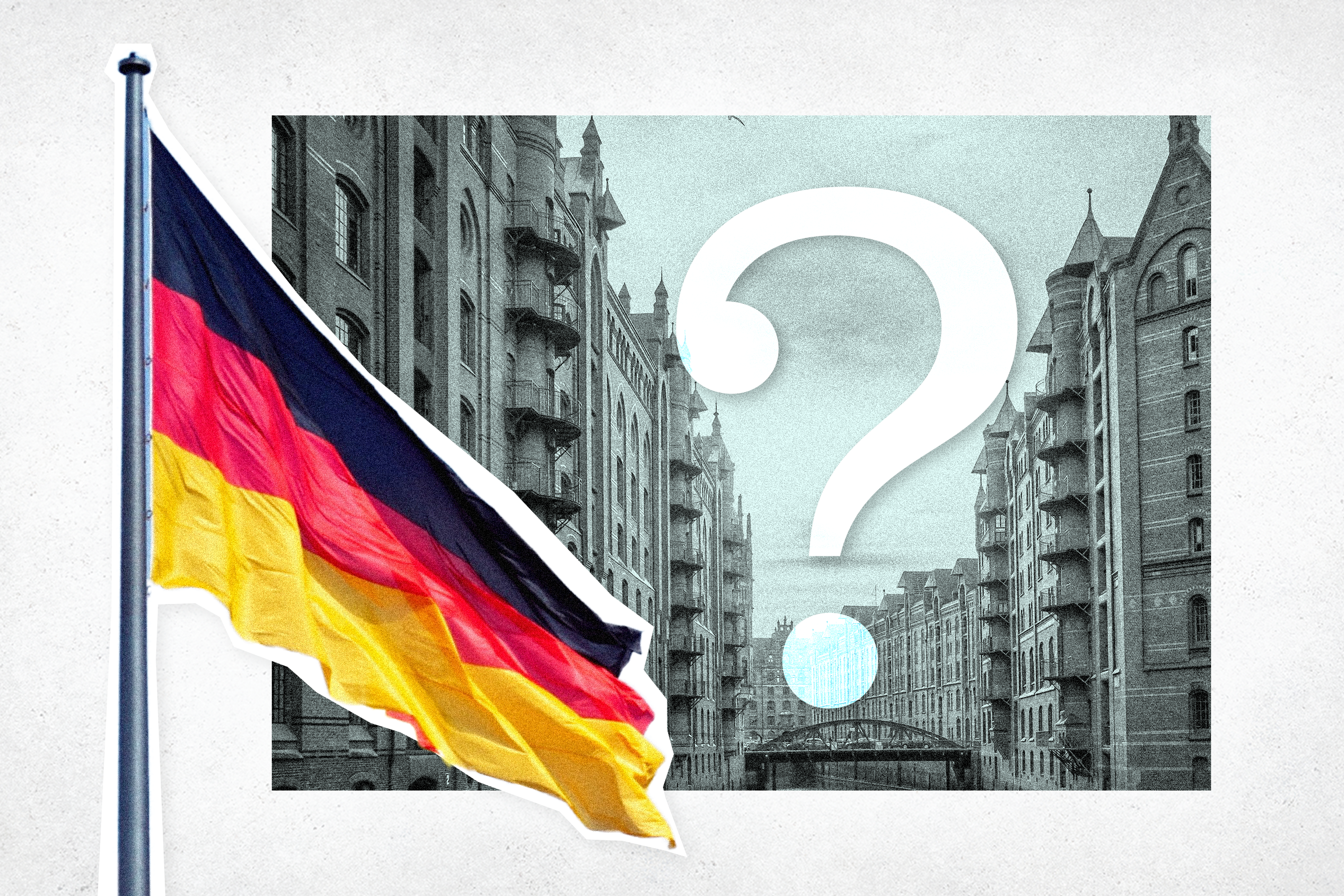September 02, 2021
You might think this looks like a traditional German election. Outgoing Chancellor Angela Merkel's center-right alliance and the center-left Social Democrats are the clear favorites to lead the next coalition government. Polls show that neither party will win a majority of seats in Germany's parliament, so smaller parties — like the Greens, the pro-business Free Democrats, and the far-left Die Linke — might each become governing partners. (The far-right Alternative for Deutschland party is highly unlikely to join a coalition.)
But with a national election just three weeks away, uncertainty and high anxiety have taken hold in German politics. Polling is neck-and-neck, making it unclear which party will lead the next coalition government or which combination of potentially awkward bedfellows that government might include. Because Merkel has kept Germany, with Europe's largest economy, at the heart of EU policy-making during her 16 years in power, the interest and uncertainty extends well beyond German borders.
For now, the big polling surprise comes from the center-left. The Social Democrats, left for dead just weeks ago, have jumped in front of Merkel's party for the first time in 15 years. Perhaps that's because Merkel's uninspiring handpicked successor, the Christian Democrats' Armin Laschet, has few original policy ideas and stands for nothing but continuity. A few gaffes have added to his reputation for haplessness. Maybe it's because the Social Democrats' candidate, Finance Minister and Vice-Chancellor Olaf Scholz, has the most governing experience and is the most personally popular of the major candidates for chancellor. Maybe it's because, after a polling surge in the spring, Annalena Baerbock, leader of the Green Party, has run a scandal-prone campaign, and leftist voters see Scholz as a "safer pair of hands."
Whatever the source of these survey surprises, the sheer number of potential coalition combinations leaves Germans and outsiders wondering how the next German government will manage Europe's largest economy, approach COVID recovery, or lead on climate change.
Climate, in particular, is an area of deep divergence between the major parties. The CDU's Laschet warns that tough new rules on carbon emissions would amount to "putting fetters on industry's feet and saying 'Now, run faster.'" Scholz argues that Germany must set more ambitious targets for a transition from carbon to renewable energy. The Greens' Baerbock insists that neither the center-right nor center-left take the climate change threat seriously and that a comprehensive approach to warming must become a national priority. The Free Democrats, who may win enough seats to become a potentially crucial coalition partner, want as few federal mandates on business as possible and will push to limit new climate rules. There are still possible election outcomes that might combine the Greens and Free Democrats as junior partners within the same governing coalition.
Given Germany's leadership position within the EU and its standing as the world's fourth largest economy, the influence of its next government on climate policy will also be crucial to global climate strategies.
After this election, Germany will form a coalition government. This isn't like the cases we've seen in recent years in Israel, Spain, Belgium, and elsewhere where months, sometimes years, of political bargaining and new elections fail to produce a viable government. But the continuing uncertainty in Germany also previews the hard re-election fight that President Emmanuel Macron can expect next year in France, the other country with the muscle to lead European policy-making.
There will be much more to say about the German election before voters head for the polls on September 26. For now, confusion about their intentions and worries over the implications remain extraordinarily high.
More For You
Security in a fragmented world: Cyber deterrence, NATO reform & the future of trusted tech
Feb 14, 2026
- YouTube
In a new Global Stage livestream from the 2026 Munich Security Conference, New York Times White House and national security correspondent David Sanger moderates a conversation with Ian Bremmer (President & Founder, Eurasia Group and GZERO Media), Brad Smith (Vice Chair & President, Microsoft), Benedetta Berti (Secretary General, NATO Parliamentary Assembly), and Wolfgang Dierker (Global Head of Government Affairs, SAP) on how technology and defense are colliding in real time.
Most Popular
- YouTube
Ian Bremmer breaks down how Trump’s second term is reshaping American power — and what it means for the global order.
© 2025 GZERO Media. All Rights Reserved | A Eurasia Group media company.
